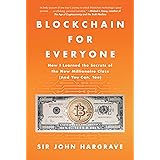Redefining Decentralized Exchange: Unlocking the Power of Earning Crypto Through Labor
Many discussions surrounding decentralized finance often focus on sophisticated trading platforms and complex liquidity pools. However, this narrow perspective overlooks a fundamental and vastly more widespread form of decentralized exchange that has existed for millennia. The accompanying video profoundly introduces a revolutionary yet ancient concept: the global labor market itself serves as the ultimate, most robust decentralized exchange for acquiring cryptocurrency.
This perspective challenges our conventional understanding, presenting a powerful solution for individuals seeking to earn crypto directly through their skills, products, and services. By embracing this approach, individuals can engage in peer-to-peer value transfers, bypass traditional financial intermediaries, and unlock new avenues for financial sovereignty in the digital age.
Beyond Conventional Platforms: The Labor Market as the Ultimate Decentralized Exchange
When most people hear the term “decentralized exchange,” their minds typically conjure images of complex trading interfaces for digital assets. Yet, as highlighted in the video, the most popular and efficient decentralized exchange often goes unrecognized: the direct exchange of labor or services for cryptocurrency. This “Earn It” model operates globally, enabling individuals to convert their unique talents into valuable digital assets without intermediaries.
Consider the core characteristics of a truly decentralized exchange. It must be peer-to-peer, borderless, neutral, anonymous, and exceptionally censorship-resistant. Traditional centralized exchanges, despite their digital nature, still operate under governmental regulations and often require extensive personal information. However, when an artist sells a piece for Bitcoin or a web designer receives Ethereum for their work, they are participating in a direct, trustless, and highly efficient decentralized exchange.
The Gig Economy and the Surge in Earning Crypto
The contemporary gig economy provides a fertile ground for this innovative form of decentralized exchange to flourish. Millions of freelancers, consultants, and creators worldwide offer their expertise in various fields, from graphic design and content creation to software development and virtual assistance. This dynamic shift in the global workforce aligns perfectly with the ethos of earning crypto directly.
Reports indicate significant growth in both the gig economy and cryptocurrency adoption. For instance, a substantial portion of the global workforce now engages in freelance activities, with projections showing continued expansion. Simultaneously, cryptocurrency ownership has surged, with millions of individuals globally holding digital assets. These converging trends amplify the potential for individuals to leverage their skills and directly acquire cryptocurrency, transforming how value is exchanged on a global scale.
Mechanism of Decentralization: Direct Value Transfer Through Labor
The decentralization inherent in exchanging labor for crypto stems from its direct, peer-to-peer nature. Unlike traditional employment, which often involves multiple layers of intermediaries—companies, banks, payment processors—this model simplifies the transaction significantly. A service provider directly interacts with a client, agrees on a price in a specified cryptocurrency, and receives payment without any third-party control over the transaction’s approval or execution.
This direct engagement eliminates points of failure and censorship, which are common within centralized financial systems. Furthermore, the underlying blockchain technology, which underpins cryptocurrencies like Bitcoin and Ethereum, ensures that transactions are immutable and transparently recorded on a public ledger. This technological foundation reinforces the decentralized nature, making the exchange of labor for crypto a highly secure and autonomous process.
Unlocking Financial Sovereignty and Borderless Opportunities
Engaging in the “Earn It” model offers unparalleled financial sovereignty and global accessibility. Many individuals in regions with unstable economies or restrictive financial regulations often struggle to access international markets or preserve their wealth. By earning crypto, they can bypass these limitations, directly participating in a global economy that transcends national borders and traditional banking systems.
Moreover, the censorship-resistant nature of cryptocurrency means that governments or institutions cannot easily block or reverse these peer-to-peer transactions. This crucial attribute empowers individuals with greater control over their financial lives and facilitates free economic interaction across diverse jurisdictions. Consequently, a web designer in one country can seamlessly provide services to a client across the globe, receiving payment instantly and securely in a borderless digital asset.
Practical Pathways to Engage in this Decentralized Exchange
Individuals can actively participate in this labor-based decentralized exchange through various practical avenues. Freelancers offering skills in web development, digital marketing, graphic design, writing, or consulting can specify cryptocurrency as a preferred payment method. Artists selling digital or physical creations, musicians licensing their work, and educators offering online courses can also leverage crypto for direct transactions.
While direct negotiation remains paramount, emerging platforms and communities are also facilitating these connections. These marketplaces often allow users to list services or bounties, with payments settled directly in various cryptocurrencies. Therefore, whether through personal networking or specialized online platforms, the opportunities to earn crypto by exchanging valuable labor and skills are expanding rapidly across the digital landscape.
Considering the Nuances and Future Evolution
While the concept of earning crypto through labor presents significant advantages, it also entails certain considerations. The volatility inherent in many cryptocurrencies can introduce payment risk, necessitating clear agreements on pricing mechanisms, perhaps in stablecoins or through immediate conversion. Taxation also remains a complex issue in many jurisdictions, requiring individuals to track their earnings and understand local regulations. However, as the digital economy matures, robust solutions and clearer frameworks are continually emerging to address these challenges.
Ultimately, the realization that the global labor market is the world’s largest, most efficient, and most anonymous decentralized exchange fundamentally redefines how we perceive value creation and acquisition. This paradigm shift, from conventional financial tools to direct crypto earnings, signifies a powerful movement towards greater individual autonomy and borderless economic participation. Recognizing this allows countless individuals to actively engage in the decentralized exchange of their talents, securing their financial future in the evolving digital landscape.







